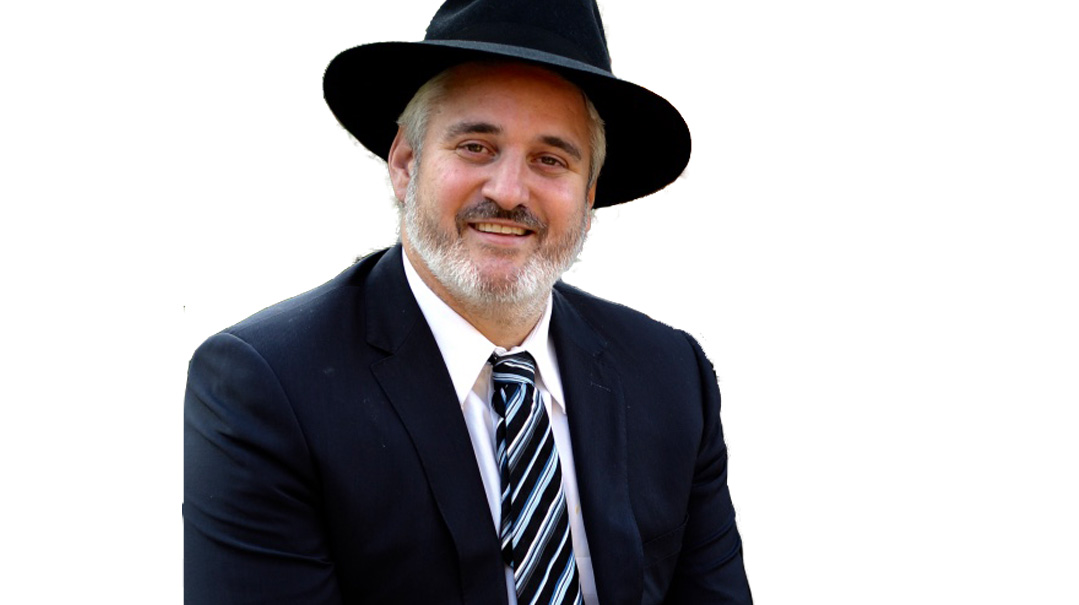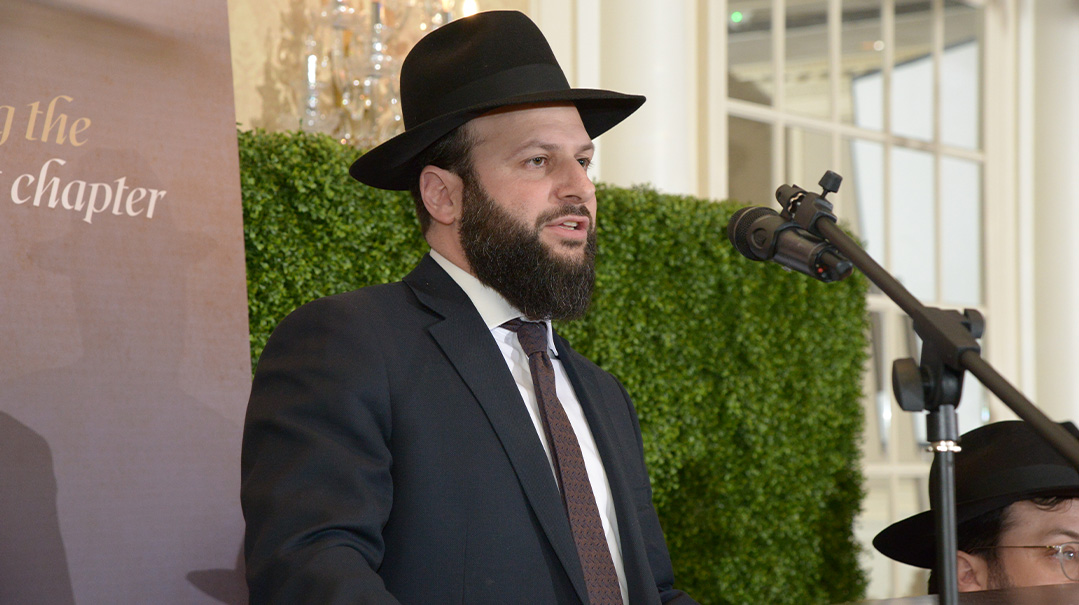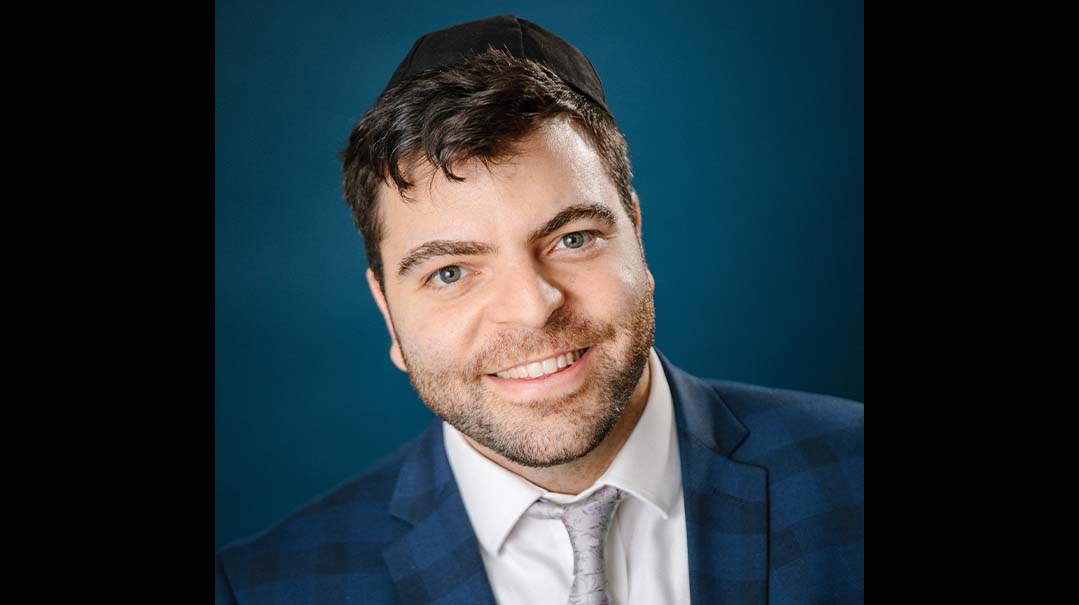Ten Questions for Eitan Press

Eitan Press is the owner of the beard balm and oil company Aleph Male. He is located in Jerusalem, Israel
How did you come up with the idea?
Many years ago, my friend told me that before Shabbos and Yom Tov, he takes a little bit of olive oil and fragrant aromatherapy oil and anoints his beard with it. I loved the idea and I started doing the same thing on my short, trim beard. Then, a couple years ago in Uman on Rosh Hashanah, I watched a man with a big fiery red beard daven with inspiring kavanah. I decided I wanted to grow my beard long as well. Even though I was using shampoo and conditioner, it still looked wild and I needed it to look neat for my job at the United Hatzalah of Israel office, where I was the digital media manager. Controlling frizz is one of the best ways to make your beard look neat, so I started experimenting with making my own beard oil and beard balm and using it to groom my beard—that’s how Aleph Male was born.
How does the beard balm actually work?
Everyone knows you can do a mitzvah stam or you can do a mitzvah mehudar. So too with the beard! Aleph Male makes the mitzvah of having a beard mehudar by making it look great. The best way to explain how it works is based on the concept that the whole is greater than the sum of its parts. So too, the beard is greater than the sum of its hairs. Aleph Male moisturizes and shapes the hairs so they work together to make the beard look well-groomed and majestic.
Who came up with the name?
Me. In secular culture, “alpha male” describes a man who embodies peak masculine qualities. It’s based on dog hierarchy, the one at the top is the alpha male. But we know the best a Jewish man can be is not like a dog, but like Hashem; the Aleph Male strives to live in alignment with the fact that he is made b’tzelem Elokim.
Who’s your clientele?
It spans the spectrum of Jewish men: Israeli Haredim, Lubavitch chassidim, Breslov chassidim, young yeshiva bachurs studying in Israel, old Sefardi men, and young modern Orthodox men in Israel or the USA. I also sell to gentiles who want to support Israel and also have a great looking beard.
Is this a fulltime job?
Almost. It’s a side parnassah that b’ezrat Hashem will soon become my main business. My professional background is in education and marketing. I spent years doing informal education for different Jewish organizations, and then the internet came along. I started blogging about Judaism, and then I transitioned to social media marketing. From years of doing online marketing, I learned how to communicate with a target audience, how to build a website optimized for conversions, and how to create compelling content to drive traffic to that website.
What element of your marketing do clients relate to most?
A lot of my marketing is really just making transparent what I like to call the Jewish story of the beard. There is so much Torah, halachah, agadah, and chassidut about the beard, it’s not hard for me to find something interesting to share. Off the top of my head: the Talmud says in Tractate Shabbos that “‘hadras panim’— the splendor of the countenance—refers to a beard,” and the famous pasuk in Tehillim that begins, “How good is it when the brothers sit together” continues with “like the good oil on the head that flows onto the beard, the beard of Aharon, which runs down on the collar of his garments.”
What tips do you have for sefirah beard growers?
First, make sure you use a mild shampoo or soap to keep your beard clean—mild mild is because there are some natural oils that are good for the beard, but regular shampoo removes them. Second, if your beard starts itching or your skin start flaking, Aleph Male can help with that. Third, if you already had a beard before sefirah and it’s gotten long, use a comb or a brush. Finally and most importantly, keep growing after sefirah!
Is that something you encourage?
Yes, because even if you never use Aleph Male or any product, there’s so much Torah about the beard opening the gates of blessing. I’ve heard that someone came to Rabbi Chaim Kanievsky for a bracha, and he told him to grow a beard and then come back. In Tiferes Adam, the Chofetz Chaim says, “It is proper to take care not to trim the beard even with scissors, for the Kabbalists write that thereby one uproots the channels of kedushah that flow from Above.” On a personal note, since I started growing my beard, my life has totally changed—I’m in a much better parnassah situation and I got engaged.
What’s your bestselling scent?
All the scents are handmade, and they’re connected to Judaism: the Sukkot blend uses hadas oil, and the havdalah blend includes cinnamon and clove oil. I also have a Boker Tov blend, which includes lavender, cedar, and citrus notes. On my website, Boker Tov and Sukkot are tied for bestseller. When I sell in person at my popup shop in Jerusalem, the bestseller is Sukkot—it really reminds people of the chag. I remember an older gentleman with a long gray beard who got very excited and animated when he tried it, he told me it was real mechayah. I don’t have a scent that hasn’t worked out, but I’m tempted to create a potato latke scent for Chanukah.
Any near fiascoes?
A few months back, there was a spike in sales and I needed to get beard balm from Israel to the US asap. A friend brought a box with him to New York, and he hired an Uber to deliver it to my shipping center. Somehow my friend gave the box to an Uber pirate, a fake driver who drove away with it. I ended up flying to New York to make sure the shipments went out. Hashem is constantly sending blessings inside the difficulties: my ticket cost $770, so I decided I needed to visit 770 in Crown Heights. My visit coincided with the Chabad shluchim worldwide conference, and I sold many tins of Aleph Male during my visit.
(Originally featured in Mishpacha, Issue 708)
Oops! We could not locate your form.







